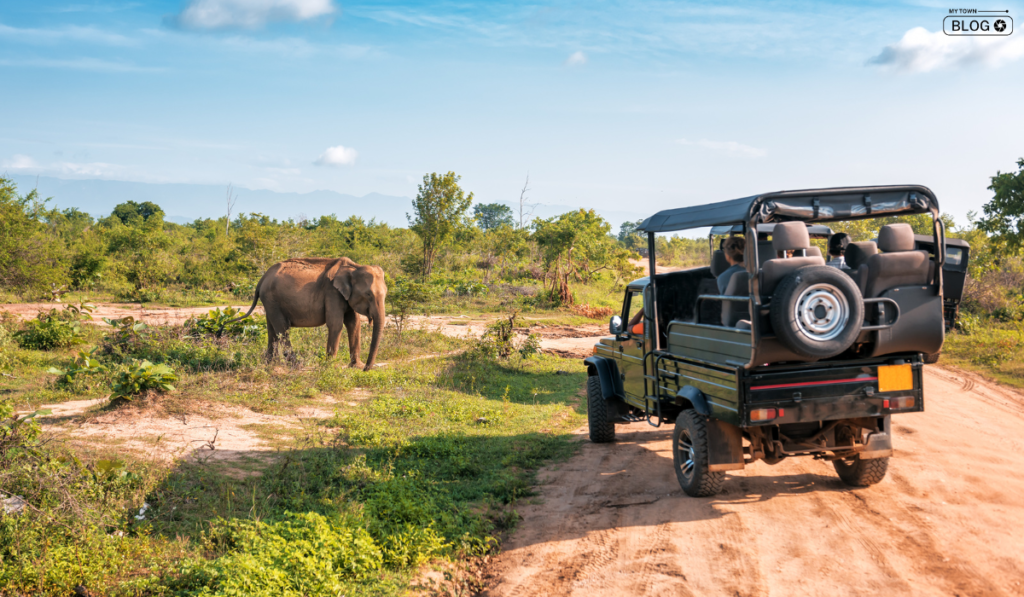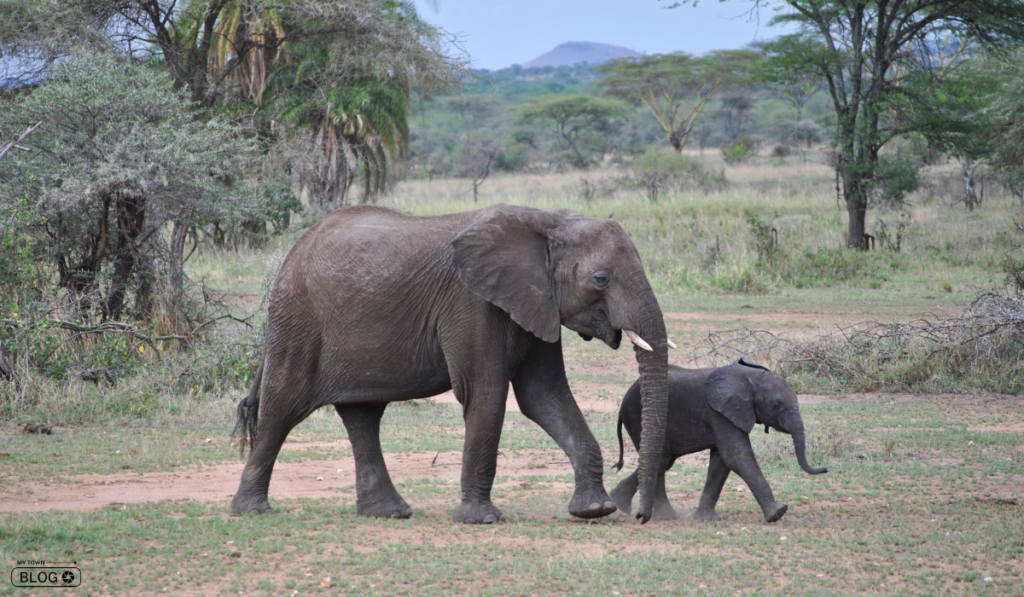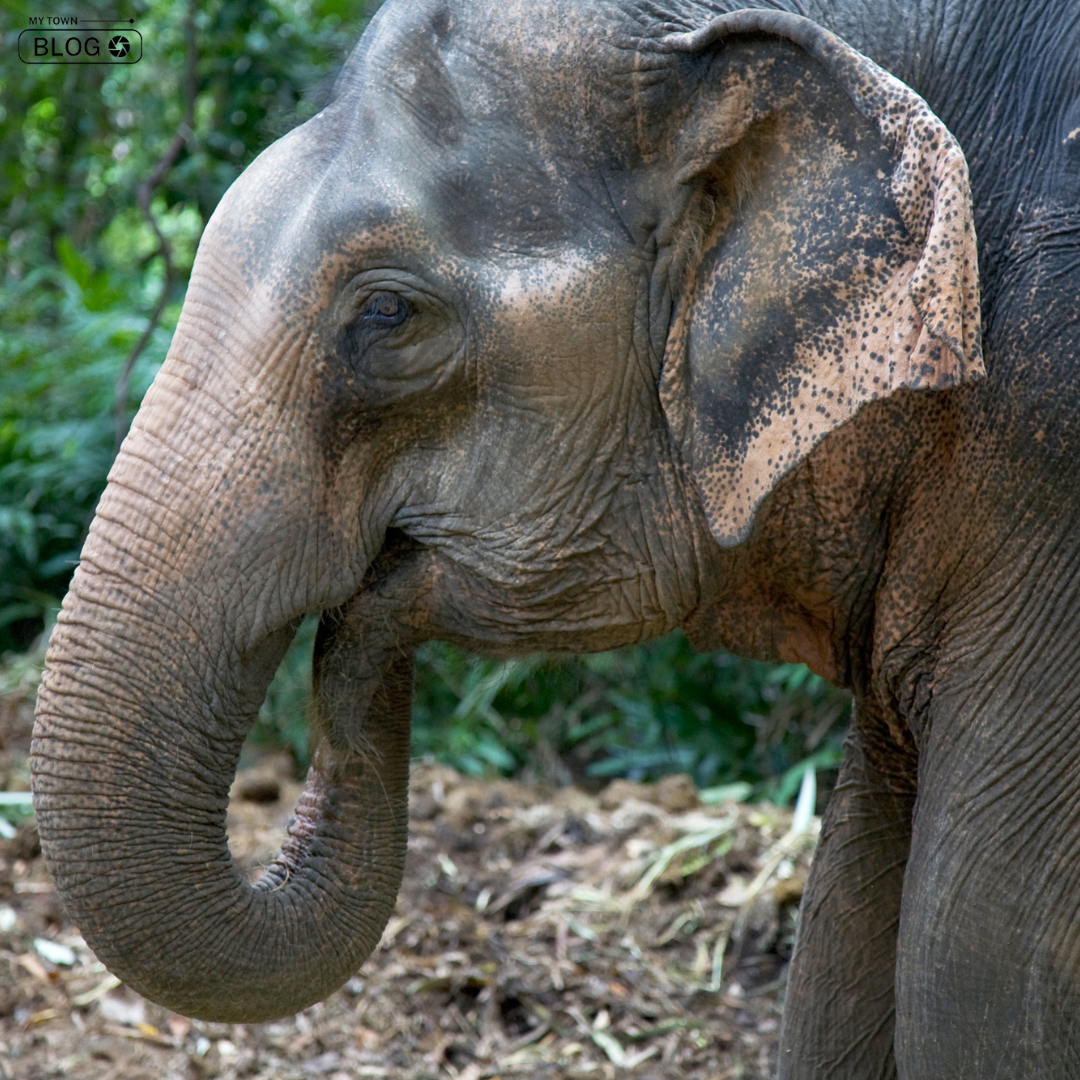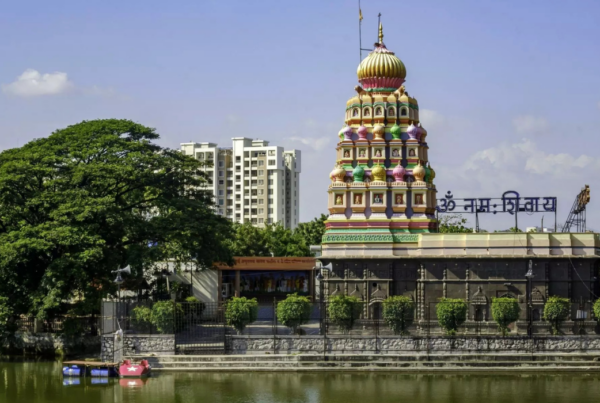With its rich cultural heritage & diverse wildlife, India offers many mesmerizing experiences for nature enthusiasts. Among these, visiting elephant camps is an extraordinary way to witness the majestic giants up close. In this article, we will take you on a journey to discover the best elephant camps in India, where you can connect with these gentle creatures while immersing yourself in their natural habitats. So, let’s embark on this exciting adventure together!

Singhbhum Elephant Reserve: First Elephant Sanctuary in India
Located in the eastern state of Jharkhand, the Singhbhum Elephant Reserve is India’s first elephant sanctuary. Spread across vast stretches of lush greenery, this reserve provides a haven for elephants and offers visitors a chance to observe them in their natural habitat. The reserve’s dedicated team of conservationists works tirelessly to ensure the well-being and protection of these gentle giants.
- Entry Fee: Rs 5 per person
- Camera Fee: Rs 80 per person
Mayurbhanj Elephant Reserve
Nestled in the picturesque state of Odisha, the Mayurbhanj Elephant Reserve is a paradise for wildlife enthusiasts. With its dense forests and tranquil ambiance, this reserve is ideal for elephant encounters. Visitors can embark on guided tours and witness these magnificent creatures in their natural surroundings. The budget also promotes conservation awareness and educates visitors about the importance of preserving elephant habitats.
- Entry Fee: Rs 40 per person
- Camera Fee: Rs 50 per person
Garo-hills Elephant Reserve
In northeastern Meghalaya, the Garo-hills Elephant Reserve is a testament to India’s commitment to wildlife conservation. Spread across the undulating hills of Garo; this reserve offers a unique opportunity to witness the harmony between elephants and their natural environment. Visitors can indulge in activities such as elephant safaris and guided nature walks, immersing themselves in the reserve’s beauty while gaining insights into the lives of elephants.
Entry Fee: No entry fees
Chirang-Ripu Elephant Reserve
Nestled in the serene landscapes of Assam, the Chirang-Ripu Elephant Reserve beckons nature lovers from far and wide. With its diverse flora and fauna, this reserve provides an enchanting backdrop for elephant encounters. Here, visitors can embark on thrilling wildlife safaris and witness the grandeur of elephants as they traverse the lush wilderness. The reserve’s conservation efforts and community involvement make it a shining example of sustainable ecotourism.
- Entry Fee: Rs 100 per person
- Elephant Safari Fee: Rs 800 per person
Anamudi Elephant Reserve
Situated in the breathtaking state of Kerala, the Anamudi Elephant Reserve offers a unique blend of natural beauty and cultural heritage. As the gateway to the Western Ghats, this reserve boasts a rich biodiversity and stunning landscapes. Visitors can partake in guided treks and elephant safaris, immersing themselves in the region’s captivating charm. The reserve’s dedication to protecting elephants and their habitats makes it an ideal destination for nature enthusiasts.
- Entry Fee: Rs 95(Kids), Rs 125(Adults)
- Foreign Tourist: Rs 420 per person
Mahanadi Elephant Reserve
Spanning across Odisha and Chhattisgarh, the Mahanadi Elephant Reserve is a sanctuary for elephants in the heart of India. With its dense forests and picturesque rivers, this reserve provides an idyllic setting for elephant encounters. Visitors can embark on guided tours and witness these gentle giants in their natural habitat. The reserve’s conservation initiatives and community involvement play a vital role in certifying the well-being of elephants and fostering a harmonious coexistence.
Entry Fee: Rs 300 per person
Theppakadu Elephant Camp
Guarded in the southern state of Tamil Nadu, the Theppakadu Elephant Camp is a haven for elephant enthusiasts. Located within the Mudumalai Wildlife Sanctuary, this camp offers visitors a solitary opportunity to interact with elephants under the guidance of experienced mahouts. From elephant rides to feeding sessions, visitors can engage in various activities that foster a deeper understanding of these incredible creatures.
- Entry Fee: Rs 20 per person
- Elephant Safari Fee: Rs 1120 per trip
Dubare Elephant Camp
Nestled along the banks of the river Cauvery in Karnataka, the Dubare Elephant Camp is a captivating destination that combines adventure and education. Visitors can participate in elephant grooming, feeding, and river rafting alongside these gentle giants. The camp also focuses on creating awareness about elephant conservation, making it an enriching experience for all.
Entry Fee: Rs 20 per person
Jaipur Elephant Village
In the vibrant state of Rajasthan, the Jaipur Elephant Village stands as a testament to the region’s rich cultural heritage. Here, visitors can witness elephants’ grandeur as they participate in colorful processions and festivities. The village provides a glimpse into the deep bond between elephants and the local communities, highlighting their integral role in traditional Rajasthani culture.
- Entry Fee: Rs 50 per person
- Foreign Tourist: Rs 300 per person
Smiling Tusker Elephant Camp, Manas National Park
Nestled within the breathtaking landscapes of Assam, the Smiling Tusker Elephant Camp in Manas National Park offers a solitary opportunity to witness the beauty of elephants in their natural habitat. Visitors can engage in activities such as elephant safaris and guided nature walks, immersing themselves in the park’s pristine wilderness. The camp’s conservation efforts and commitment to sustainable tourism make it an ideal destination for nature lovers.
Entry Fee: Rs 4000 per person which include:
- Accomodation
- Safari
- Walk

FAQs
What activities can one engage in at an elephant camp?
At an elephant camp, visitors can engage in activities such as elephant rides, feeding sessions, and bathing. These experiences offer a chance to interact with this majestic animal up close and learn about its behavior and conservation.
How are elephants cared for in camps?
Elephants in camps receive proper care and attention from trained professionals called mahouts. They ensure the elephants’ well-being by providing nutritious food, veterinary care, and spacious enclosures. Regular exercise, socialization, and mental stimulation are crucial for camp elephant care.
Are there any risks of diseases from elephants in camps?
Elephants in well-managed camps undergo regular health check-ups and receive appropriate vaccinations, minimizing the risk of diseases. Centers maintain strict hygiene protocols and provide a safe environment for both elephants and visitors. It is essential to obey the advice provided by the camp authorities to ensure a safe and enjoyable experience.
Can I bring the children to an elephant camp?
Yes, children can visit elephant camps and have a memorable experience. It is an excellent opportunity for them to learn about wildlife conservation and witness the majestic elephants in a safe and educational environment. However, it is essential to adhere to the camp’s rules and regulations for the safety of both children and elephants.
Can I ride an elephant at an elephant camp?
Many elephant camps offer elephant rides as an activity. However, choosing bases prioritizing elephant welfare and ensuring responsible tourism practices is crucial. Always opt for commands that follow ethical guidelines, such as limiting the number and duration of rides and providing adequate rest and care for the elephants.
Can I take photographs of elephants at the camps?
Yes, most elephant camps allow visitors to take photographs with elephants. It is a beautiful opportunity to capture memories of your encounter with these majestic creatures. However, respecting the elephants’ comfort and safety is essential. Follow the camp’s guidelines and maintain a safe distance while capturing these precious moments.
Can I participate in elephant conservation research at the camps?
Some elephant camps collaborate with researchers and conservationists, providing opportunities for individuals to participate in ongoing elephant conservation research projects. These programs may involve data collection, behavioral observation, or assisting with research initiatives to better understand and protect elephants in their natural habitats.
Are there any specific rules for interacting with baby elephants at elephant camps?
Interactions with baby elephants should always be guided by the camp’s rules and the recommendations of their caretakers. These rules often include maintaining a safe distance, following instructions provided by the mahouts, and refraining from any behavior that may startle or harm the baby elephants.
Can I witness elephant bathing rituals at the camps?
Some elephant camps offer the opportunity to witness elephant bathing rituals. Mahouts or caretakers often perform these rituals and involve gently washing and scrubbing elephants in designated bathing areas. It’s a fascinating experience that allows visitors to observe the unique bond between mahouts and elephants.
Conclusion
In conclusion, India’s elephant camps offer mesmerizing experiences for nature enthusiasts. From the Singhbhum Elephant Reserve in Jharkhand to the Smiling Tusker Elephant Camp in Assam, these camps provide opportunities to witness elephants up close and immerse oneself in their natural habitats. These experiences promote conservation and offer a deeper understanding of these gentle creatures. Whether through guided tours, elephant safaris, or cultural interactions, visiting these camps is an exciting adventure that combines wildlife encounters with the rich cultural heritage of India.








